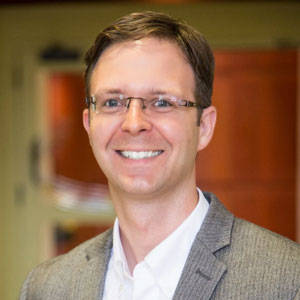
Tuesday 26 April 2022, 15.00-16.00 CEST
Delivered by Dr. Paul Macklin, Associate Professor of Intelligent Systems Engineering at Indiana University (IU).
| Speaker: | Paul Macklin (Indiana University) |
| Date and time: | Tuesday 26 April 2022, 15.00-16.00 CEST |
| Target group: | Anyone interested in simulation of metabolic models, and applications of open source computational tools in systems biology. |
| Learning outcomes: | Describe how PhysiCell can simulate the interaction of different cell agents Identify PhysiCell new developments |
Tissues are complex multiscale biological systems where cells communicate to modulate their behaviour in response to dynamical microenvironmental conditions. Small perturbations to cells—such as injuries or therapy—can have unanticipated “ripple effects” that percolate through the system. We can use computational models as “virtual laboratories” to explore these complex systems.
In this talk, we will introduce PhysiCell, an open source agent-based modelling platform that can simulate many individual cell agents as they interact in tissue with multiple diffusing chemical signals. We will give examples drawn from hypoxic cancer invasion, mechanics-driven “reawakening” of dormant micrometastases, and innate and adaptive immune responses to viral pathogens (like SARS-CoV-2) and tumour micrometastases.
We will close with new developments (and a live demonstration!) to integrate knowledge mapping directly into the modelling process, where expert-driven biological hypotheses (chemical signal X increases cell behaviour Y) are directly transformed into mathematics and code. In our vision, multidisciplinary teams will curate biological knowledge to jointly develop mathematical models in real time to better evaluate our knowledge gaps and exploit our knowledge to treat disease.

About the speaker:
Dr. Paul Macklin is an Associate Professor of Intelligent Systems Engineering at Indiana University (IU).
His team, the Math Cancer Lab, develops open source computational tools for multicellular systems biology, such as BioFVM (for multi-substrate diffusion) and PhysiCell (for large-scale agent-based simulations in 3-D tissues). He has worked closely with others to develop new capabilities for the PhysiCell platform. The codes developed have been applied to diverse problems in cancer biology, nanotherapy, tissue engineering, immunology, cryobiology, synthetic systems, and microbiology.
Registration





